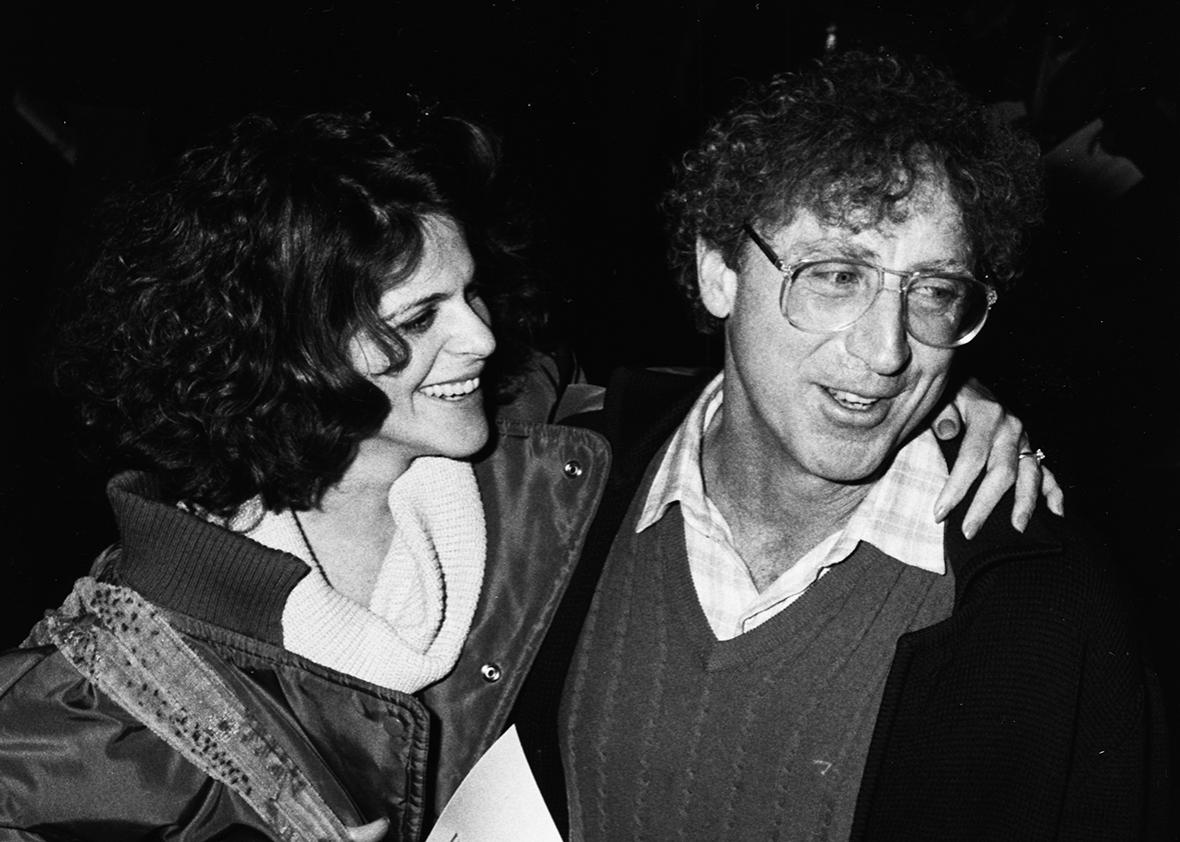In 2005, Gene Wilder traveled to New York City from his home in Connecticut for one of the most important openings of his life. It wasn’t one of the notoriously private comedian’s side-splitting movies, or the stage version of The Producers on Broadway. (He starred in the 1968 film across from Zero Mostel.)
He was there for the opening of Gilda Radner Way, as the section of West Houston Street between Sixth Avenue and Varick had just been renamed. Sixteen years earlier, he had lost his wife, comedian Gilda Radner, to ovarian cancer. Soon after, he had thrown himself into activism around the disease: In 1995 he had helped found the nonprofit support network Gilda’s Club (housed on the corner of Houston and Sixth). The renaming was in celebration of the nonprofit’s 10th anniversary, commemorating the place where families touched by the scourge of cancer had come together to share emotional and social support with one another.
Wilder, who died at 83 this Sunday, was devastated by Radner’s death—and convinced that Radner had suffered more greatly because her doctors were less aware of the condition, which delayed her diagnosis. When they ultimately realized what was wrong, it was too late. Wilder chronicled the end of Radner’s life in a tearful essay for People in 1991:
For weeks after Gilda died, I was shouting at the walls. I kept thinking to myself, “This doesn’t make sense.” The fact is, Gilda didn’t have to die. But I was ignorant, Gilda was ignorant—the doctors were ignorant.
She could be alive today if I knew then what I know now. Gilda might have been caught at a less-advanced stage if two things had been done: if she had been given a CA 125 blood test as soon as she described her symptoms to the doctors instead of 10 months later, and if the doctors had known the significance of asking her about her family’s history of ovarian cancer. But they didn’t. So Gilda went through the tortures of the damned and at the end, I felt robbed.
Wilder channeled his feelings into activism. In addition to Gilda’s Club, he established the Gilda Radner Hereditary Cancer Program at Cedars-Sinai Medical Center in Los Angeles and testified before a congressional subcommittee, recounting every painstaking detail of the comedian’s slow decline. Congress eventually allocated some $30 million to federal ovarian-cancer research, according to the Los Angeles Times.
Radner was one of the first celebrities to speak openly about her diagnosis, and her explicit wish was that Wilder continue this mission after she was gone, says Lily Safani, the CEO of Gilda’s Club NYC. Wilder’s commitment helped usher in a new era of openness in conversations around cancer. The medical community has since realized the benefits of support groups in treating cancer: Two studies from the Institute of Medicine (now the National Academy of Medicine) in 2007 and 2013 both emphasize the role in psychosocial support not just for cancer patients, but their families, friends, lovers, and health care providers.
Gilda’s Club NYC continues to serve families stricken by cancer across the city. (In 2015, it provided support for more than 20,000 people and raised more than $2 million.) In 2009, it merged with the Wellness Community, a similar nonprofit, to form the Cancer Support Community, now the largest provider of psychosocial support for families struggling with cancer in the United States.*
Wilder may have kept quiet about his own struggle with Alzheimer’s, but when it came to helping people fight the illness he saw his late wife suffer, he had no problem raising his voice.
*Correction, Sept. 2: The original version of this post misidentified the Wellness Community as the Wellness Club.
